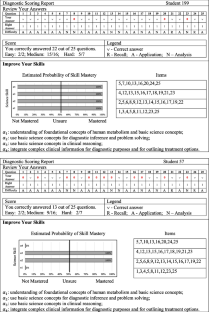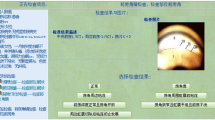Abstract
Feedback stands as a cornerstone in facilitating knowledge and skill acquisition, particularly in the realm of self-directed learning. Drawing from Vygotskian theory, which posits learning as an apprenticeship process within the zone of proximal development (ZPD), effective feedback becomes a crucial scaffold for students navigating their educational journey. This article delves into the significance of feedback, guided by Hattie and Timperley’s three pivotal questions. While clinical environments recognize the importance of feedback in patient care, its application during the formative preclerkship years often remains overlooked.

Similar content being viewed by others
References
Hattie J. Visible learning: a synthesis of over 800 meta-analyses relating to achievement. London and New York: Routledge; 2009.
Vygotsky LS. Mind in society. Cambridge, MA: Harvard University Press; 1978.
Shute V. Focus on formative feedback. Rev Educ Res. 2008;2008(78):153–89.
Hattie J, Timperley H. The power of feedback. Rev Educ Res. 2007;77:81–112.
Wood D, Bruner JS, Ross G. Role of tutoring in problem-solving. J Child Psychol Psychiatry. 2013;17:89–100.
van den Bergh L, Ros A, Beijaard D. Teacher feedback during active learning: Current practices in primary schools. Br J Educ Psychol. 2013;83(Pt 2):341–62. https://doi.org/10.1111/j.2044-8279.2012.02073.x.
Kelly E, Richards JB. Medical education: Giving feedback to doctors in training. BMJ. 2019;366:l4523. https://doi.org/10.1136/bmj.l4523.
Ramani S, Krackov SK. Twelve tips for giving feedback effectively in the clinical environment. Med Teach. 2012;34(10):787–91. https://doi.org/10.3109/0142159X.2012.684916.
Bangeranye C, Lim YS. How to use cognitively diagnostic assessments of student performance as a method for monitoring and managing the instructional quality in undergraduate medical education. Acad Med. 2020;95(1):145–50. https://doi.org/10.1097/ACM.0000000000002954.
Rupp AA, Templin JL, Henson RA. Diagnostic measurement. Theory, methods, and applications. New York: Guilford; 2010.
de la Torre J, van der Ark A, Rossi G. Analysis of clinical data from a cognitive diagnosis modeling framework. Meas Eval Couns Dev. 2018;51(4):281–96. https://doi.org/10.1080/07481756.2017.1327286.
Sessoms J, Henson RA. Applications of diagnostic classification models: a literature review and critical commentary. Measure: Interdisc Res Perspect. 2018;16(1):1–17.
Lim YS, Drasgow F. Nonparametric calibration of item by attribute matrix in cognitive diagnosis. Multivar Behav Res. 2017;52:562–75.
Chen Y, Culpepper SA, Chen Y, Douglas J. Bayesian estimation of DINA Q matrix. Psychometrika. 2018;83:89–108.
Tatsuoka KK. A probabilistic model for diagnosing misconception in the pattern classification approach. J Educ Behav Stat. 1985;12:55–73.
Junker BW, Sijtsma K. Cognitive assessment models with few assumptions, and connections with nonparametric item response theory. Appl Psychol Meas. 2001;25:258–72.
Liu R, Huggins-Manley AC, Bulut O. Retrofitting diagnostic classification models to responses from IRT-based assessment forms. Educ Psychol Measur. 2018;78(3):357–83. https://doi.org/10.1177/0013164416685599.
Chen J, de la Torre J, Zhang Z. Relative and absolute fit evaluation in cognitive diagnosis modeling. J Educ Meas. 2013;50(2):123–40.
Robitzsch A, Kiefer T, George AC, Uenlue A. CDM: cognitive diagnosis modeling [R package]. Version 7.5-15. 2020. https://cran.r-project.org/package=CDM. Accessed 1 Mar 2021.
Ma W, de la Torre J. GDINA: the generalized DINA model framework [R Package]. Version 2.7.9. 2020. https://cran.r-project.org/package=GDINA. Accessed 1 Mar 2021.
Funding
None.
Author information
Authors and Affiliations
Corresponding author
Ethics declarations
Ethics Approval
This study was deemed exempt by the Hofstra University Internal Review Board.
Informed Consent
N/A.
Conflict of Interest
The authors declare no competing interests.
Additional information
Publisher's Note
Springer Nature remains neutral with regard to jurisdictional claims in published maps and institutional affiliations.
Rights and permissions
Springer Nature or its licensor (e.g. a society or other partner) holds exclusive rights to this article under a publishing agreement with the author(s) or other rightsholder(s); author self-archiving of the accepted manuscript version of this article is solely governed by the terms of such publishing agreement and applicable law.
About this article
Cite this article
Lim, Y.S., Willey, J.M. & Bangeranye, C. An Exploration of Cognitive Diagnosis in Medical Education: Constructing Comprehensive Feedback for Enhanced Student Learning. Med.Sci.Educ. (2024). https://doi.org/10.1007/s40670-024-02064-2
Accepted:
Published:
DOI: https://doi.org/10.1007/s40670-024-02064-2




